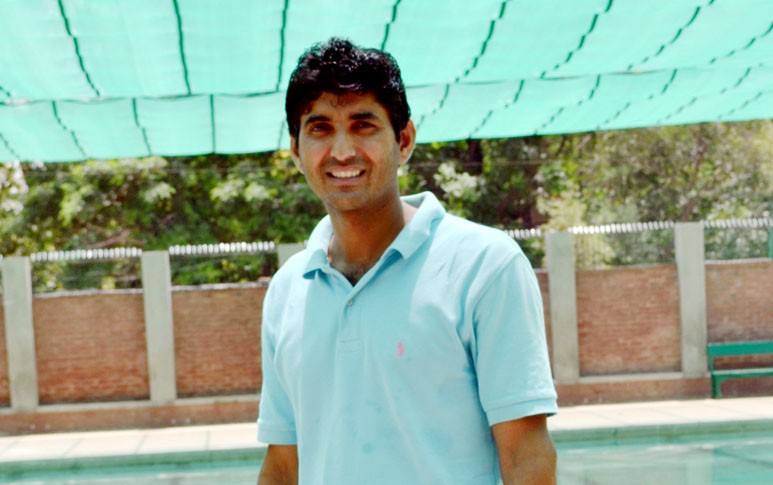
A tete-e-tete with Ghulam Murtaza, a swimming coach who train underprivileged children for national and international competitions

Ghulam Murtaza is a swimming coach with a difference. He has trained children for national and international competitions but this isn’t solely his claim to fame; it is his club, Alpha Aquatics, where he "train underprivileged boys and girls who can’t afford [going to] swimming pools or even have the right diet."
We meet up for an interview on a hot Thursday morning, at Forman Christian College (FCC) where he is serving as a coach. Murtaza turns out to be a lively person who loves to share his childhood antics of swimming in the Canal. Excerpts follow.
The News on Sunday [TNS]: How did you initially become interested in swimming?
Ghulam Murtaza [GM]: I grew up in a small village near Bhawalpur and started bathing in the Canal. The first time I jumped in, I nearly drowned. I had seen small children swimming and had thought, "If they can do it, so can I." After nearly drowning, I decided that I needed to learn swimming.
I attended Sadiq Public School. When a swimming camp was announced, I went to the camp and had my first training and learnt things like kicking and breathing patterns. My first competition was the U-12 tournament in Lahore in ’96. After that, I joined the Punjab district team and then switched to WAPDA swimming team before joining the national team. Eventually, I became a national gold medalist in team events, and got silver and bronze in individual events.
TNS: How did you transition to coaching?
GM: In Lahore, the teaching style of coaches bothered me a lot. They would often speak harshly and I couldn’t accept it. It’s not their fault because they had learnt to coach that way. However, I was scared of my teachers and found it problematic that I couldn’t even honestly express my problems to the coach. I decided that the quality of coaching and the approach needed to change. Hence, I started coaching in Aitchison College. Now I am with the Wapda team and have started coming to FCC, too.
I don’t force my students but see what motivates them. Students spend a lot of time with me so I know their eating, sleeping routines and social circles. I train them by understanding them and motivating them instead of scolding them. When I went back to coach in my district, where most of the children were not educated, I also focused on their personal grooming.
A lot of potential exists in areas like Bahawalpur. I try to find such underprivileged swimmers and bring them in and coach them. Such kids have a thirst in them to learn and excel with even a little guideline. I’m also running a club, Alpha Aquatics, where I train underprivileged boys and girls who can’t afford [going to] swimming pools or even have the right diet.
TNS: How do you go about hunting for talent?
GM: Last week, we toured alongside the neher (canal) and saw children swimming. We noted swimmers with talent and called them to us. After giving them ice cream and explaining who we were, we told them that we’ll hold a 10-15 days long camp to groom them. They were enthusiastic; some even climbed onto trees and said, "Sir, check out our jump!"
TNS: Do you have trouble convincing the families of these children?
GM: I have spoken to some of their parents. The problem is that they have jobs, despite being so young. Their parents are concerned about their earnings. Some of them commit to us, some don’t.
Right now at FCC, we get children from the elite class and their parents are very encouraging. Girls, especially, are being supported a lot by their parents.
However, this is only happening in a very small circle. With girls, other issues arise. For instance, we can’t call in the media at the girls’ events. For this reason, low-income families are reluctant to let their girls swim. However, we just need to focus on every child we get. One single child can bring in an Olympic medal for Pakistan.